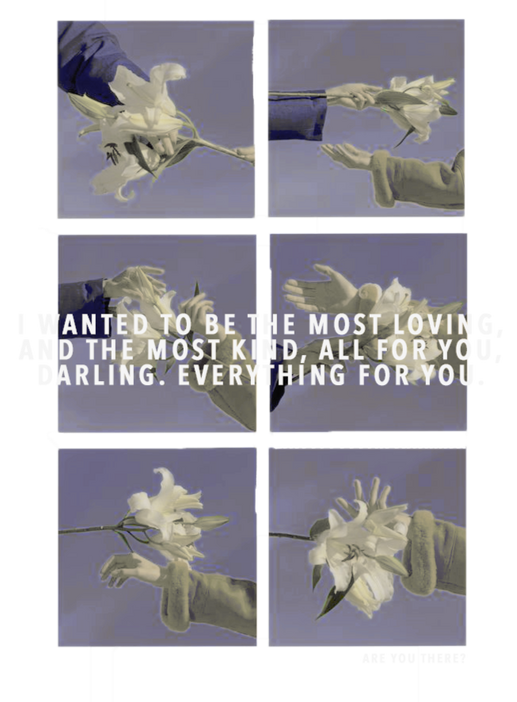AN INTRODUCTION INTO THE INSIGNIFICANT PERFORMANCE OF THE FAIR OPHELIA
i. This is a private writing blog for a modernized interpretation of Ophelia from the Shakespeare play, Hamlet. It will put heavy emphasis on themes such as breaking from reality and dissociation, as well as family based trauma (including mentions of my personal canon of Ophelia's mother's suicide and her father and brother's subsequent reactions). As a result, there will be sensitive topics broached in both metas and threads, albeit tagged. Still, I would recommend caution in following if these above subjects are triggering for you. Please let me know if there are any tags or other measures I can take to make you more comfortable when interacting with this blog.
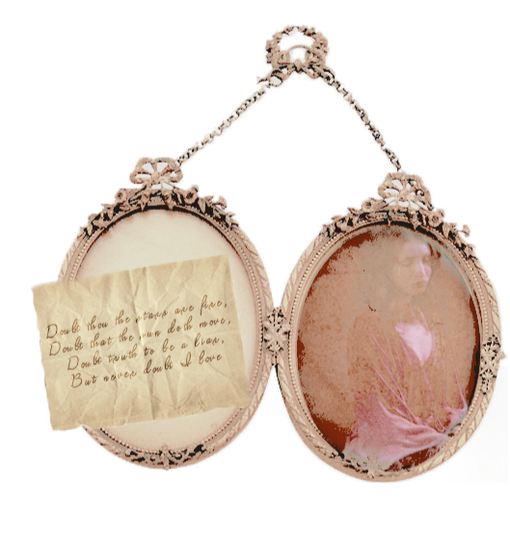
PROP #267. – GOLD LOCKET. Inside, a picture of Ophelia herself, and a folded note, reading: "Doubt thou the stars are fire, Doubt that the sun doth move, Doubt truth to be a liar, But never doubt I love."
1. ophliea
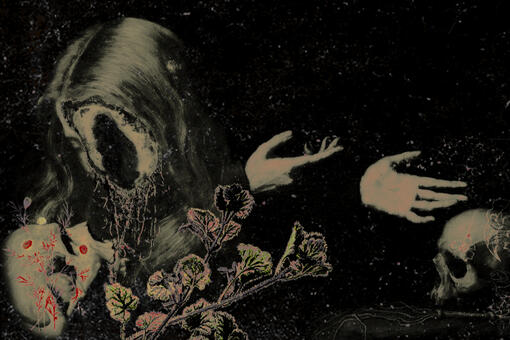
ii. All typical rules apply, such as avoid godmodding, etc. I am a mutuals only blog and therefore will not write with those I do not follow. However, my ims are open to plotting with non-mutuals if you're interested. I will be slow with responding to messages, so please be patient.
iii. I will practice exclusivity once dynamics have been developed with other writers either within threads or through plotting. Those exclusives will be listed here, though there are none at the moment! I will be hesitant for now to become exclusive with any other Shakespeare blogs until I've solidified my interpretation further.
iv. My name is Róisín! I'm 24, use she/they. PST. I only give my discord info out after some ooc interaction, but I will be happy to talk through tumblr IMs.
v. Other Links: you can find Ophelia's pinterest board here.
2. the girl with her bleeding feet
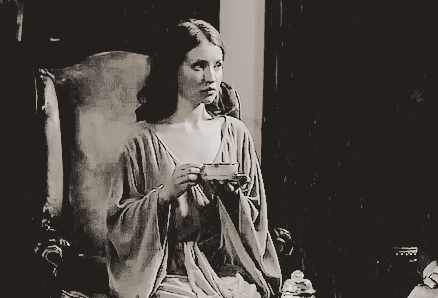
ophelia complex
"In short, the Ophelia Complex could be defined as feeling like nothing. A person suffering from this complex has no sense of self, importance, or soul. They feel that they simply do not matter; to themselves or to any other living creature.
[...] I feel Gertrude witnessed Ophelia’s death without trying to save her because of indifference. Ophelia simply did not matter." – NANCY HINMAN
"I'm your Opheliac
My stocking prove my virtues
I'm open to attack
But I don't want to hurt you
Whether I swim or sink
That's no concern of yours now
How could you possibly think
You had the power to know how
To keep me breathing
As the water rises up again
Before I slip away" – EMILE AUTUMN
why am i considered a child
and why then do they remark of the wind kissing my breast
and why then do they speak of me
like this
like i am
nothing.
i am unsure what's real –
"The wind kisses her breasts and unfolds in a wreath
Her great veils rising and falling with the waters;
The shivering willows weep on her shoulder,
The rushes lean over her wide, dreaming brow.
[...] It was the voice of mad seas, the great roar,
That shattered your child's heart, too human and too soft;
It was a handsome pale knight, a poor madman
Who one April morning sate mute at your knees!" – ARTHUR RIMBAUD
Ophelia, daughter of Polonius, younger sister of Laertes. She is the image of quiet grace, a specter by the corner that floats in and out of your field of view with ease. Not too enticing, not too mysterious, but just enough so to remain aloof.
character breakdown
a. WHO? The baby of the family. The daughter of a weeping sylph of a mother, prone to a similar psychological disarray. Child to the king's closest advisor. Lover of the tormented, charming prince. Withering. Wilting. Lady of flowers.
b. WHAT? Rarely speaks her mind. resents her brother's freedom. Always alone. Reads and fidgets with various hobbies to pass the time; talented in many odd trades. Close with Hamlet. Aches to be close with her brother.
c. WHERE? Elsinore. The pond. The grave. Where else?
d. WANTS? To speak with a voice entirely her own. To be something stronger than her tattered backbone. Respect.
crucial quotes
"But, good my brother,
Do not, as some ungracious pastors do,
Show me the steep and thorny way to Heaven
Whiles, like a puffed and reckless libertine,
Himself the primrose path of dalliance treads
And recks not his own rede."
– in regards to laertes, and a brewing resentment, though coated by a tender familiar love. an unfortunate hypocrisy in his and their father's treatment of ophelia, while he proves more likely to taint the family name with his behavior than she, locked up in elsinore and bored. bored, bored, bored . . .
"I was the more deceived."
– to imply that she believed hamlet's love for her was genuine, that he either performed it so well, or that it had to, at one point, been sincere. that he had to have loved me, that my love for him was real, that i am real, that i am real, that these walls, that this blood, god, god, god, TO IMPLY THAT SHE BELIEVED HAMLET'S LOVE WAS GENUINE, THAT HE EITHER PERFORMED IT SO WELL, OR THAT -
"Her death was doubtful,
And, but that great command o’ersways the order,
She should in ground unsanctified been lodged
Till the last trumpet."
– in death, she is evaluated for her worthiness of sanctity, which she so verily broke in her final days alive despite her previously steadfast performance of it. WRECKAGE OF A BODY, MY BODY, MY ARMS WEIGHED DOWN BENEATH ME AS I SINK, – as i sink – it is of interest to the performer to note that the character of ophelia, considering the conditions of her death, was spiraling in a multitude of ways in the time following her father's murder. it was a steady decline, mentally, that left her feeling apparently so isolated and destroyed that she ended her own life.
can you see me? do you read my words? are these my words? am i speaking?
notable influences
With little else to occupy herself, the young Ophelia oft turned to the romantic, exciting, and morbid worlds of fiction, particularly that of Hans Christian Anderson. Below is an exploration of the fairytale lore which has influenced Ophelia's character.
𝐭𝐡𝐞 𝐥𝐢𝐭𝐭𝐥𝐞 𝐦𝐞𝐫𝐦𝐚𝐢𝐝. this is, perhaps, ophelia’s long-time favorite. she has reread this countless times and relates to it heavily. the story of voiceless girl, prepared to walk upon glass for the opportunity to be loved. but it speaks more specifically than that, even.
in the story, as it goes, the little mermaid has to wait her turn to see the light of day and have the chance to sit on the rocks and watch the ships pass by. she longs for that, but has to wait until she’s of age, and she watches as each of her siblings is able to do it before her, because she is the youngest. ophelia’s dynamic with laertes holds a resemblance. laertes is allowed that freedom that ophelia longs for but can’t quite articulate. she suffers watching him live without as much scrutiny from his father. polonius is concerned for his son, surely, but he seems to care more about not impeding his independence –– he’s secretive when it comes to checking in on him, which isn’t necessarily healthy in its own way but it does inherently allow more perceived freedom, which is what ophelia sees of it, because she isn’t even allowed that much.
another similarity from the story is the art of suffering. the mermaid in the tale suffers for the prince and for the promise of a soul, a promise that she won’t turn to sea foam as all mermaids do and cease to exist, that she’ll live on as humans do in spirit. ophelia’s lifestyle is one of suffering, suffering silence and the coldness of the court of denmark –– for a cause. her demeanor is for the hope that, one day, she’ll be married, and that she’ll be loved. the way she’s raised leads her to hold an understanding that her goal is to find someone to commit to, and most of the stories and lessons she is taught is that one day, she’ll find someone perfect, and they’ll, in turn, sweep her off her very feet.
the mermaid suffers both the loss of her voice and very real pain, which will not go away. atop feeling the sensation of a sword being struck through her as she drinks the potion to change herself to a human, she also will feel as though she is stepping upon knives with every step she takes, and her feet will bleed from the imagined wounds. through all this, the mermaid still maintains her determination to pursue her dream. ophelia’s suffering is not quite as physical, up until her death, but it takes a painful mental toll. she has very few people to turn to in order to confide her mental strife and the effects of the pressure put upon her. she isn’t able to seek any support for very serious symptoms of an underlaying issue ( mental health will be spoken of soon in a full meta! ), and convinces herself that she must suffer any emotional strife in order to stay her course. she must do it silently, and hide the damage, and be cautious in opening up. she becomes so thoroughly settled in this narrative that she finds it difficult, even, to speak up to those who prove to be safe ears.
3. small thing in the garden
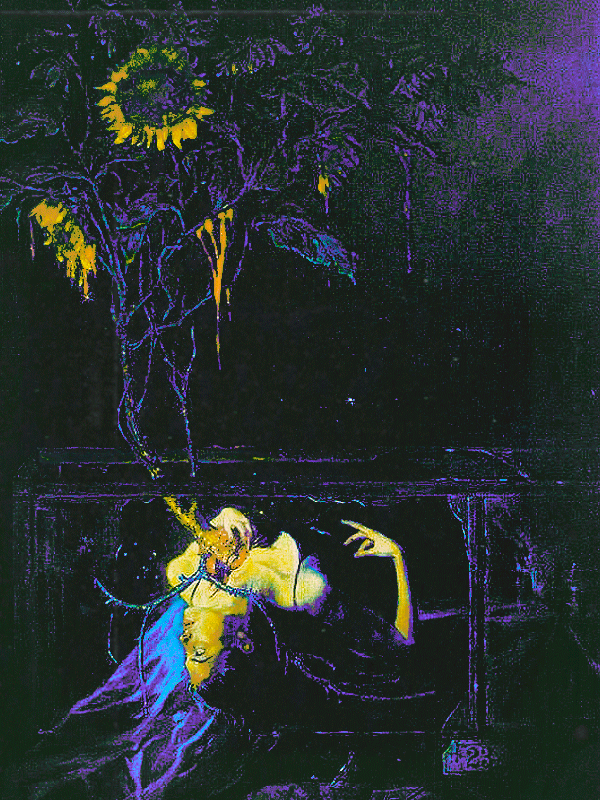
𝐭𝐡𝐞 𝐫𝐞𝐝 𝐬𝐡𝐨𝐞𝐬. to dance until the death of you, performative action becoming your inevitable fate. for something you love to be twisted so thoroughly that it becomes something you fear and feel restrained within ––– ophelia’s femininity is both prison and comfort. she appreciates her silence sometimes, is genuine in her thoughtful nature, but she feels trapped by it, too, knowing that she can’t speak so freely as the men who surround her. she loves the dresses she wears but can’t help but feel like she can’t breathe, can’t move, that they are weights to her to that she is anchored in place, an unrelenting sinking feeling. she had felt that everywhere she’d gone, so how much of a relief it was to have the dress she wore to her death buoy itself around her, if only for a moment, if only to allow her the ecstasy of weightlessness for a short, measly moment. it feels as if it a punishment for an unknown crime, perhaps that of being her father’s only daughter. perhaps that of not being clever enough to talk her way out of her own circumstance. this is ophelia’s least favorite story.
𝐭𝐡𝐮𝐦𝐛𝐞𝐥𝐢𝐧𝐚. this story in particular holds a space in ophelia’s heart as a genuine escape. it is, perhaps, the only story with a happy ending that she aspires to. to gain wings by marriage to someone with your same hopes, dreams, and not to be kept away underground or carelessly discarded from one suitor to the next. to be valued by your womanhood and your availability to wed ––– to be judged by your appearance and your history in love, it all rings familiar. eerily so.
i think this is the most positive of any story that ophelia likes, and it proves the one she turns to in times that she longs for comfort.
on a physical level, i also think there is something important in the way ophelia views herself as inherently fragile. the figure of a fairy-sized girl in thumbelina is therefore relatable in the way of tangible weakness. there is vulnerability to everything about her, which is the reality ophelia faces, and is really one of her largest insecurities: that she perceives herself as incapable of defending or taking care of herself, and that she projects that fragile image into the world and therefore invites others to view her as breakable and meek.
it should be noted that the ending in the story is that thumbelina finds someone her size, that person being a fairy ( she being born human from magic, and only being fairy-sized ). he gives her wings and they wed, and she lives happily ever after. this in itself is the complete fantasy ––– to marry and be whole, finally. but not only whole –– given the gift of flight and freedom, given the opportunity to belong somewhere, and to be loved. this fairytale represents everything ophelia allows herself to suffer for.
